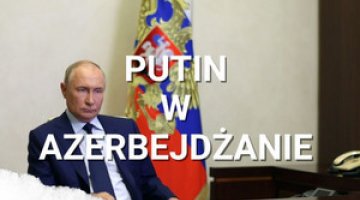Georgia: tensions over controversial law continue to escalate
The political conflict in Georgia around the law entitled ‘On the Transparency of Foreign Influence’, which has been under consideration since mid-April, continues to escalate. The ruling Georgian Dream (GD) party is determined to press ahead with the new regulations: on 1 May, the law passed its second reading, and its third and final reading is scheduled for mid-May. It will then go to President Salome Zourabichvili, who has already announced that she will veto it; however, the parliamentary majority is in a position to override her veto. These developments have been accompanied by anti-Western rhetoric from the government.
The opponents of the new regulations have stepped up their protests. Daily street demonstrations in Tbilisi have drawn up to 100,000 participants (Georgia’s population is c. 3.5 million); the largest one to date is due to take place on 11 May. During the previous rallies, police used pepper gas and flashbang grenades to disperse the demonstrators; they also beat up opposition leaders. Officials from the EU (Georgia is officially a candidate to join the bloc), the US and NATO have sharply criticised the law as contrary to democratic values and the EU’s legislation.
Commentary
- The legislative act under consideration is also known as the ‘law on foreign agents’, as it requires NGOs and media outlets which receive more than 20% of their funding from abroad to register on a special list of ‘foreign agents’. It is widely seen by critics as targeting third-sector and independent groups. The new regulations resemble those that have been in place in the Russian Federation for more than a decade. A year ago, the parliamentary majority in Georgia tried to pass a law with very similar wording, but withdrew the draft under pressure from street protests and Western criticism.
- Two circumstances may have influenced the GD’s decision to revive this law. Firstly, since December 2023, Georgia has been a candidate for the EU and it is unlikely to lose this status, whereas a year ago it was still only seeking it (accession to the EU is still a stated priority of Georgia’s foreign policy). Secondly, the parliamentary elections scheduled for 26 October are drawing nearer. The GD is not only looking to score its fourth consecutive victory (which according to polls is very likely) but also to secure a constitutional majority in the new parliament, which would enable it to tighten its grip on the state even more. It has also been pursuing these goals in the context of the presidential elections to be held later this year (a college of MPs and local government members will elect the new head of state). The law’s provisions will significantly limit the options for the GD’s unambiguously pro-Western opponents.
- The ruling party’s politicians have sharpened their anti-Western rhetoric noticeably, claiming that the West has failed to grasp the substance of the solutions they have been implementing, and that it has been urging Georgia to join the war against Russia. Prime Minister Irakli Kobakhidze has explicitly accused the US of trying to engineer coups in Georgia on two occasions in 2020-23 with the aim of overthrowing the GD government. The ruling camp’s leader Bidzina Ivanishvili (who is formally the party’s honorary chairman) also delivered an anti-Western speech at a rally on 29 April: he plainly repeated many of Russian propaganda’s claims, including the allegation that the West’s expansionist policy had forced Russia to attack Georgia in 2008; he counterbalanced these remarks with a bullish pledge that the country would become an EU member by 2030. Regardless of the statements made by those in the ruling camp, Georgia’s current course is objectively drawing it closer to Russia, a drift that has been confirmed by numerous statements from Russian politicians who have explicitly supported GD (see ‘Drifting towards Russia: an acute political crisis in Georgia’).
- The law under consideration is opposed by President Zourabichvili, who has focused her efforts on lobbying for Georgia’s European course in the West, as well as virtually the entire opposition, who are led by the United National Movement; founded by former President Mikheil Saakashvili, they are the dominant party on this side of the political stage. The mass protests have mostly been attended by young people, primarily students, who have strongly emphasised their nonpartisanship as well as their anti-Russian attitude: they have dubbed the bill the ‘russkiy law’. So far, they have not selected any representative spokespeople, but it is worth noting their high level of self-organisation. This can be seen in the methodical approach to their actions, including setting up blockades of major thoroughfares in the capital, providing emergency medical assistance to those who have been injured in police operations, muting the protests for the Orthodox Easter holiday (which this year fell on 5 May), and so on. This is reminiscent of the way the 2018 revolution in Armenia was organised. In view of the great determination of both the protesters and the ruling GD (there have been no signs of any split within the ruling elite so far), the situation is very likely to continue to escalate. It is conceivable that the demonstrators might try to seize the seats of power, while the government could move to crack down on further street demonstrations, including the one scheduled for 11 May.




